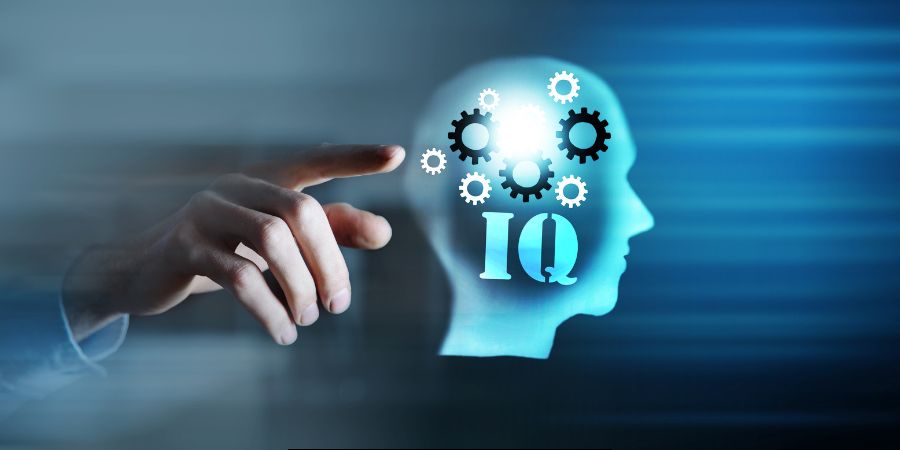Intelligence has shaped the world throughout history. There have been some with exceptional intellectual capacity, giving us great achievements in the field of science, mathematics, philosophy, and a number of other areas. These geniuses have taken human knowledge to new heights and left an indelible mark on society. The highest IQ in history of individuals with exceptional problem-solving capacity, creativity, and innovativeness. This is the story of ten people with their unbelievably high level of intelligence.
- Johann Wolfgang von Goethe
Johann Wolfgang von Goethe was a German writer, scientist, and poet, and is widely regarded as one of the greatest writers in history. Goethe’s IQ is approximated to have been between 210 and 225, placing him among the highest IQ individuals in history. Goethe’s influence was seen in science, philosophy, and literature, primarily in colour theory and early psychology. His extensive knowledge base and intellectual pursuits rendered him a true polymath.
- Leonardo da Vinci
Leonardo da Vinci was one of the giants of the bygone eras. Well-known for masterpieces like the Mona Lisa and The Last Supper, da Vinci was a pathfinder in fields like anatomy, engineering, and physics too. His intelligence quotient is estimated to be 180-220. Da Vinci, with his zeal for education, was the epitome of the Renaissance period, making the most of the brain for all the faculties and leaving behind a legacy that continues to inspire modern science and art.
- Albert Einstein
Theoretical physicist Albert Einstein transformed the knowledge of the universe by his relativity theory. He possessed an IQ level ranging from 160 to 190 and transformed modern physics and gave revolutionary remarks about time, space, and energy. Einstein’s intellect was not limited to science; his philosophical ideas on philosophy, politics, and human rights revealed his vast analytical capacity. His work is still influencing scientific research globally.
- Isaac Newton
Sir Isaac Newton, arguably the greatest scientist in history, has an estimated IQ of 190 to 200. His contributions to calculus, gravity, and classical mechanics formed the basis of modern physics. Newton’s capacity to understand and describe intricate laws of nature exemplified a sort of intelligence that was in his own league. His contributions to optics and mathematics continue to influence scientific progress.
- Nikola Tesla
Nikola Tesla, the genius electrical engineer of alternating current (AC) electricity, possessed an estimated IQ of 160-310. Tesla’s mind was a tornado of thoughts, coming up with inventions decades before their time. His works in electrical engineering, wireless communication, and electromagnetism make him one of the highest IQ individuals ever. Tesla’s intelligence was frequently overshadowed by money issues, but his contribution to modern technology is out of this world.
- William James Sidis
William James Sidis, another prodigy child, had exceptional intellectual ability from his childhood. His IQ is between 200 and 300. He was admitted to Harvard University at the age of 11 and amazed professors with his mathematical skills. Even having such exceptional intelligence, Sidis lived the freeman’s life avoiding fame and writing extensively on different topics pseudonymously. His biography is a chronicle of the way human beings respond when blessed with unparalleled intellectual capacity.
- Carl Friedrich Gauss
The “Prince of Mathematicians” Carl Friedrich Gauss scored an IQ between 250 to 300. His contribution towards number theory, geometry, and statistics was remarkable and revolutionized mathematics. The contributions made by Gauss towards physics, astronomy, and engineering were revolutionary and speaking volumes of his superior analysis strength. He possessed the exceptional potential to crack tougher problems from an extremely young age, becoming one of the smartest individuals on the planet.
- Terence Tao
Terence Tao, an ongoing mathematician, is estimated to have an IQ of between 225 to 230. At a very tender age, he showed tremendous math talent by receiving a PhD at the tender age of 20. His works in number theory, harmonic analysis, and random matrix theory are now setting mathematical research agenda. Tao’s problem-solving talent and capabilities placed him among the all-time highest IQ in history.
- Christopher Hirata
Christopher Hirata, a physics child prodigy, displayed exceptional intellectual ability at a very young age. With an approximate IQ of 225, he worked with NASA on Mars missions when he was 14 years old. Hirata turned into a PhD from Princeton University and made significant contributions to astrophysics and space exploration. His outstanding intelligence has placed him among the all-time greats.
- Marilyn vos Savant
Marilyn vos Savant, whose highest recorded IQ of 228 is among the highest on record, became popular due to her capacity for solving difficult math problems and brain teasers. She became popular with her “Ask Marilyn” column, providing solutions to tricky questions in the field of reasoning and logic. She has become a symbol of respect among the intellectual elite due to her brains and problem-solving abilities.
The Legacy of Exceptional Intelligence
The individuals with the highest IQ in history have left a legacy for the entire mankind. Their contributions to science, mathematics, art, and philosophy continue to shape the world today. Greatness is not quantified by intelligence but by determination, creativity, and the ability to think outside the box as the primary ingredients to make history. These great minds motivate future generations that human potential is limitless.
Understanding intelligence and how it affects society makes us value the importance of knowledge and innovation. Through scientific breakthroughs, art, or mathematical principles, the highest IQ in history continues to influence and inspire the world today. Their intellectual pursuits instill in us that curiosity and pursuit of knowledge can lead us to astounding discoveries which forge the future.







